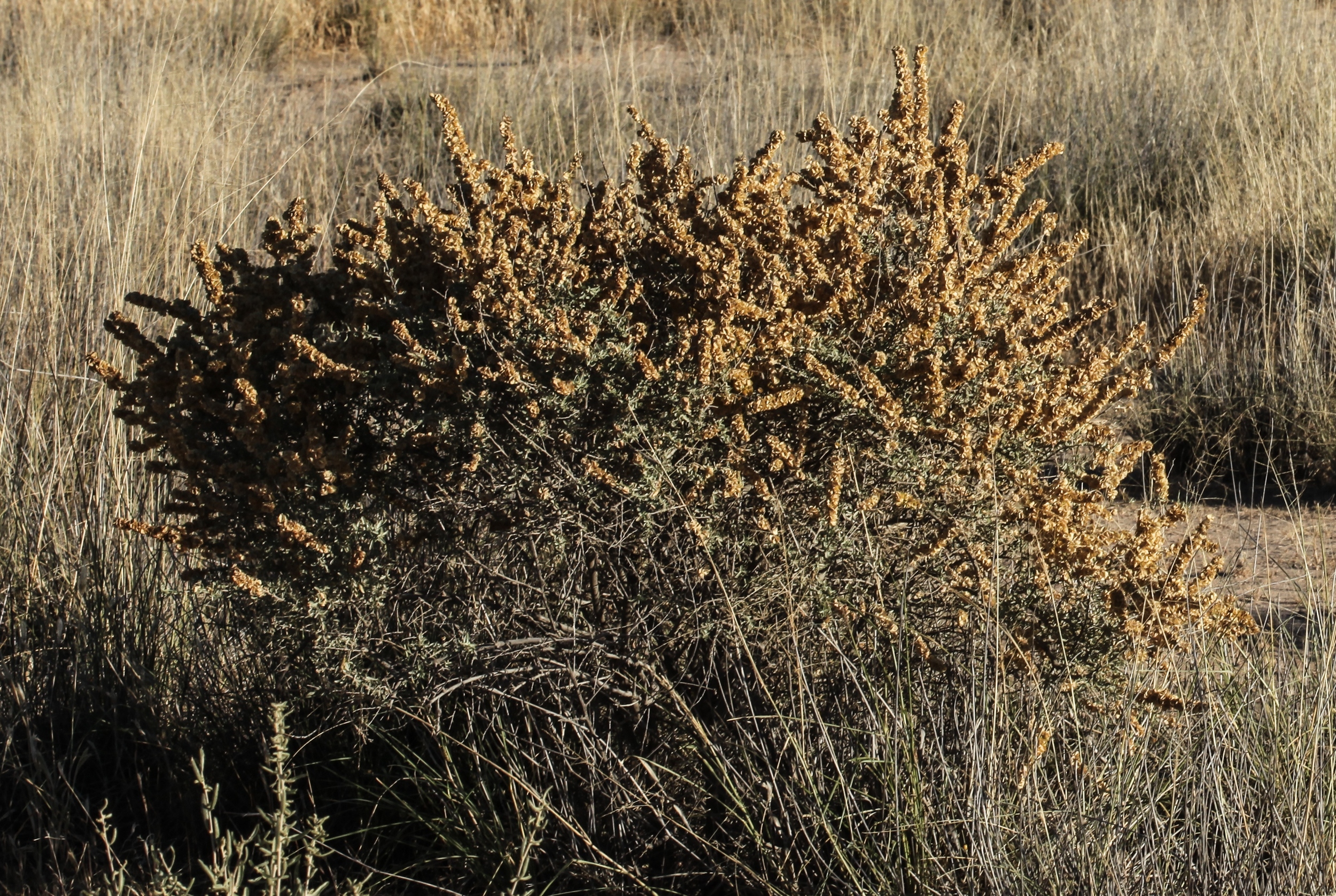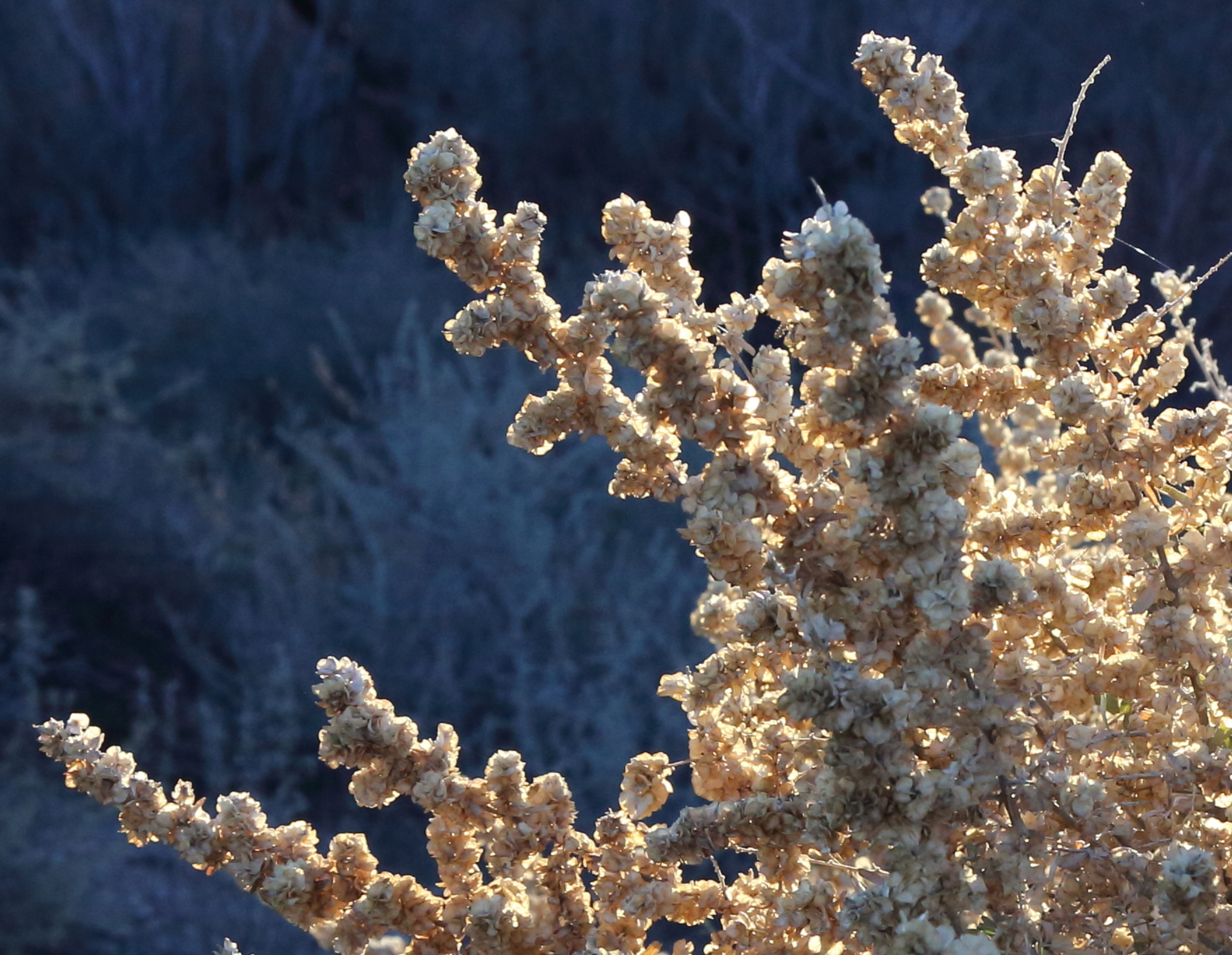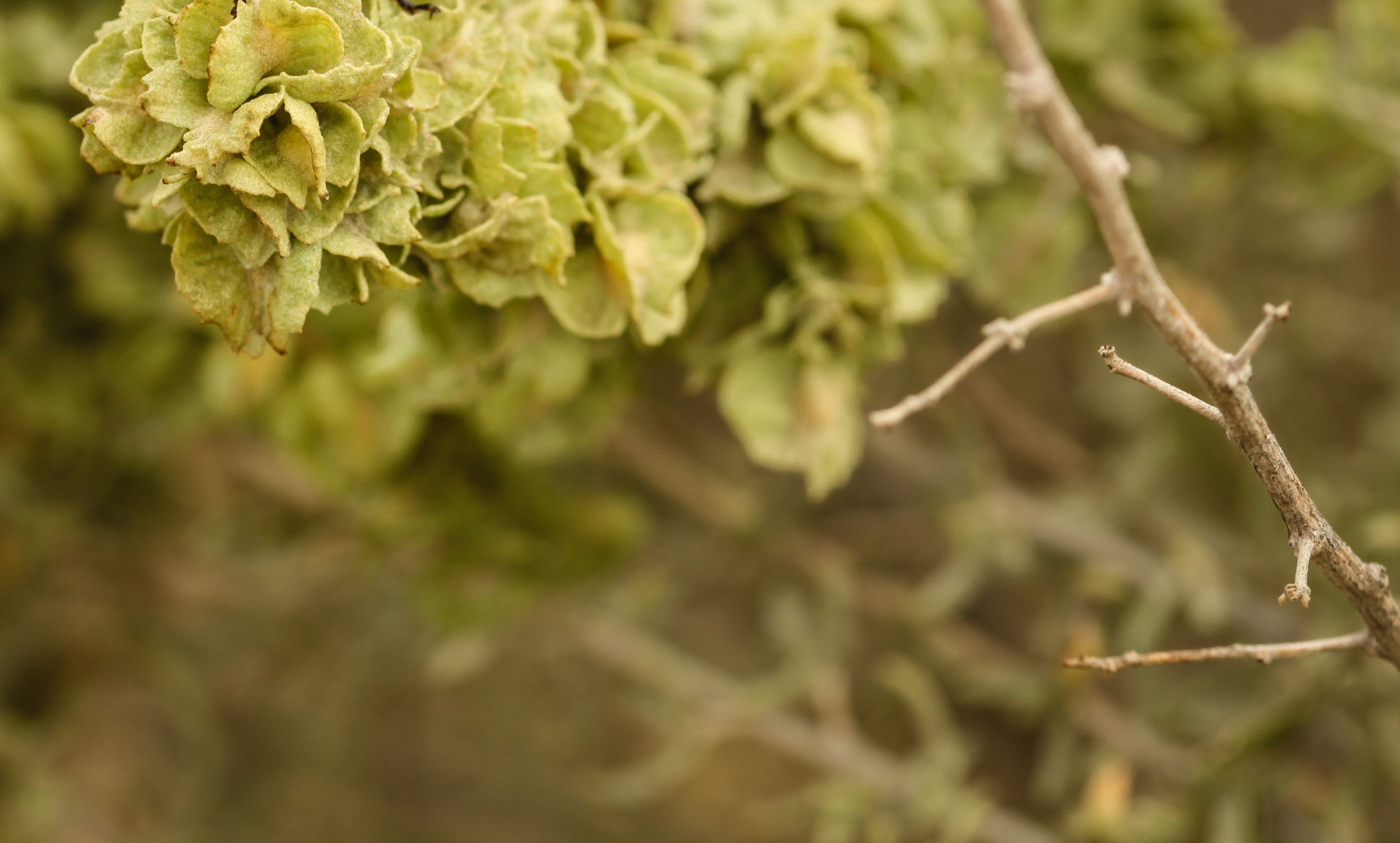Atriplex canescens (Fourwing saltbush)
Greatly branched evergreen to deciduous shrub from 2-10 ft. tall with red to yellowish-brown or nondescript flowers, blooming April to October. Adapted to all soil textures, including clays but most common on well-drained, coarse soils and is saline and alkaline tolerant; up to 9,000 ft. elevation. Intolerant of high water tables and inundation. Important and often dominant in numerous types of desert shrub communities within the Great Basin, Great Plains, Mojave, Sonoran and Chihuahuan Deserts. Some populations are rhizomatous and may sprout after low-severity fire. Excellent palatability to browsing livestock and wildlife with protein, fat and carbohydrate content similar to Alfalfa (Medicago sativa). Especially valuable forage during fall, winter and drought. Excellent cover and seeds for birds and small mammals, providing water for black-tailed jackrabbits, which are a major food source of golden eagles. Foliage fed on by numerous insects and is a caterpillar host of the MacNeill’s saltbush sootywing, Saltbush sootywing and San emigdio blue butterflies. Varieties listed below.
DISTRIBUTION / ADAPTATION
INFORMATION & ATTRIBUTES
Family: Chenopodiaceae
Duration: Perennial
Growth Habit: Shrub
Native Status: Native
Growth Form: Multiple Stem
Mature Height: 4 ft.
Bloom Color: Yellow
Fruit/Seed Color: Green
Bloom Period: Late Spring
Annual Precipitation: 5-18 in.
Drought Tolerance: High
Shade Tolerance: Intolerant
Elevation: Up to 8,500 ft.
Fire Resistance: No
Fire Tolerance: Low
Nitrogen fixation: None
SOIL ADAPTATION
Coarse Texture: Yes
Medium Texture: Yes
Fine Texture: Yes
Salinity Tolerance: High
CaCO3 Tolerance: High
pH Range: 6.5-9.5
SEEDING NOTES
Seeds per Pound: 44,200
Seeding Rate: PLS lbs/acre
Season: Fall/Winter
Days to Germination:
VARIETIES & LOCAL ACCESSIONS
Wytana - Naturally occurring hybrid cross with Gardner’s saltbush (A. gardneri) that grows up to 4 ft. tall. Less spiny than other saltbushes. Adapted to salty sites in Idaho, Montana and Wyoming. Developed for mine reclamation and range revegetation in arid and semi-arid northern latitudes. (Released 1976)




